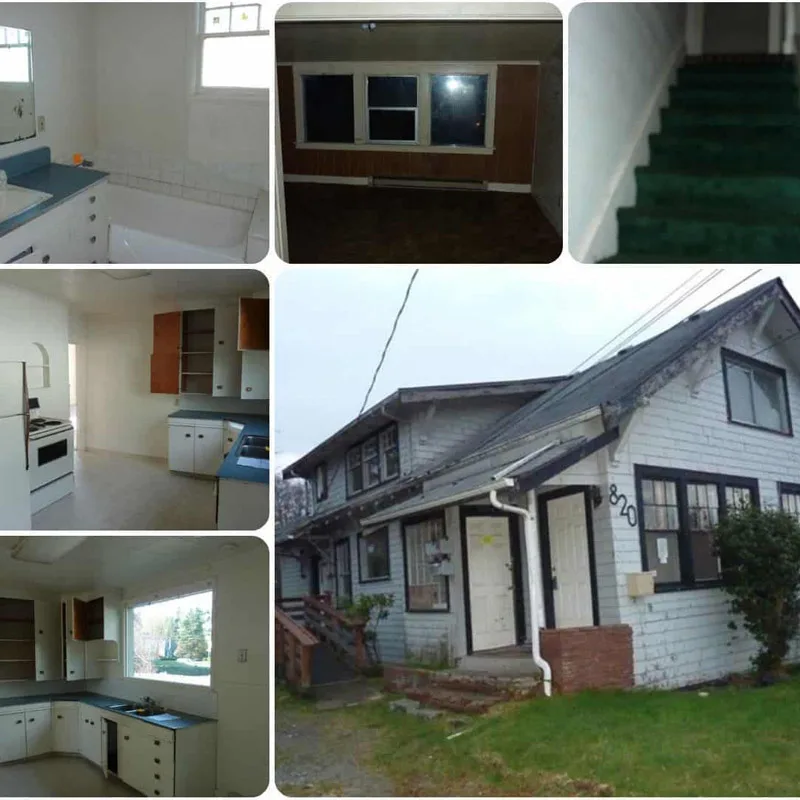Latest Posts
Finding Your Sweet Spot: How Much Should I Spend on a House?

SHARE
Buying a house is a significant financial decision that involves careful consideration of your budget, long-term financial goals, and lifestyle. The question that often looms large for prospective homebuyers is, “How much should I spend on a house?” The answer to this question requires a thoughtful assessment of various factors to strike a balance between affordability and meeting your housing needs. In this article, we explore key considerations to help you determine the optimal amount to spend on a house.
Assess Your Financial Situation
Before diving into the house-hunting process, take a close look at your current financial situation. Evaluate your income, monthly expenses, debt obligations, and overall financial health. Understanding your financial position is the first step in determining how much you can realistically afford.
Consider factors such as your employment stability, future income growth potential, and any upcoming major expenses. Establishing a clear picture of your financial situation provides a foundation for making informed decisions about the affordability of a home.
Establish a Realistic Budget
Creating a budget is essential to identify the maximum amount you should spend on a house. Financial experts often recommend following the 28/36 rule. This guideline suggests that your monthly housing costs should not exceed 28% of your gross monthly income, while your total debt, including housing costs, should not surpass 36% of your gross monthly income.
Consider all housing-related expenses, including mortgage payments, property taxes, homeowner’s insurance, and potential homeowner association (HOA) fees. Factor in other debts such as car loans, student loans, and credit card payments to ensure that your overall debt remains within a manageable range.
Down Payment Considerations
The down payment is a crucial component of the homebuying equation. While there are varying opinions on the ideal down payment percentage, a common recommendation is aiming for at least 20% of the home’s purchase price. A larger down payment reduces the loan amount, potentially leading to lower monthly mortgage payments and reduced interest costs over the life of the loan.
However, it’s important to note that many lenders offer mortgage options with lower down payment requirements, such as FHA loans with a 3.5% down payment or conventional loans with down payments as low as 3%. Assess your savings and evaluate the impact of different down payment scenarios on your overall budget.
Consider Additional Costs
Beyond the purchase price and down payment, there are additional costs associated with buying a house that should be factored into your budget. Closing costs, which include fees for services like appraisals, inspections, title searches, and loan origination, typically range from 2% to 5% of the home’s purchase price.
It’s essential to be prepared for these additional costs to avoid financial strain during the closing process. Your real estate agent and mortgage lender can provide estimates of closing costs based on the specifics of your transaction.
Plan for Long-Term Financial Goals
Buying a house is not only a short-term investment but also a long-term commitment. Consider how homeownership aligns with your broader financial goals. Assess your savings for retirement, emergency funds, and other financial priorities.
Avoid allocating all your financial resources toward the purchase of a home, leaving little room for other essential financial goals. Striking a balance between homeownership and long-term financial stability is crucial for a sustainable and fulfilling financial future.
Factor in Future Expenses
Owning a home comes with ongoing expenses beyond the initial purchase. Maintenance, repairs, property taxes, and insurance are recurring costs that should be considered when
determining your budget. It’s essential to have a realistic understanding of the responsibilities that come with homeownership and budget accordingly.
Create a contingency fund for unexpected repairs or emergencies, as these expenses can impact your monthly budget. A well-planned budget that accounts for both ongoing and unexpected expenses sets the stage for a more secure homeownership experience.
Understand Your Lifestyle
Your lifestyle and personal preferences play a significant role in determining how much you should spend on a house. Consider factors such as the desired location, the size of the home, amenities, and proximity to schools, work, and other essential services.
While it’s tempting to stretch your budget for a dream home, it’s crucial to maintain a realistic perspective on your needs and priorities. Prioritize features that align with your lifestyle and avoid unnecessary expenses that may strain your financial resources.
Get Pre-Approved for a Mortgage
Securing a mortgage pre-approval is a crucial step in the homebuying process. A pre-approval provides a clear understanding of the loan amount you qualify for based on your financial profile. This information can help you refine your budget and focus your search for homes within your price range.
Additionally, a pre-approval letter enhances your credibility as a buyer in the eyes of sellers, potentially giving you a competitive advantage in a competitive market. Work with a reputable mortgage lender to complete the pre-approval process and gain a realistic view of your purchasing power.
Be Mindful of Market Conditions
Real estate market conditions can influence the affordability of homes in a particular area. In a seller’s market, where demand outweighs supply, prices may be higher, and competition among buyers can be fierce. In contrast, a buyer’s market may offer more favorable pricing and negotiating opportunities.
Stay informed about current market conditions in your target area and adjust your expectations and budget accordingly. Real estate professionals can provide valuable insights into local market dynamics and help you navigate the complexities of buying a home in different market scenarios.
Seek Professional Guidance
Navigating the complexities of the real estate market and determining an appropriate budget can be challenging. Seeking professional guidance from a real estate agent, financial advisor, or mortgage broker can provide valuable insights and expertise.
A real estate agent, in particular, can help you identify properties that align with your budget, negotiate favorable terms, and guide you through the entire homebuying process. Their market knowledge and experience can be instrumental in making informed decisions and achieving a successful and satisfying home purchase.
Determining how much to spend on a house is a multifaceted decision that requires a careful assessment of your financial situation, long-term goals, and lifestyle preferences. By establishing a realistic budget, factoring in additional costs, and considering your future financial priorities, you can make an informed decision that aligns with your overall financial well-being.
Seeking professional guidance and working with experienced real estate professionals and financial advisors ensures that you navigate the complexities of the homebuying process with confidence and achieve a balanced and sustainable investment in homeownership.











